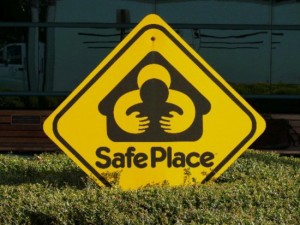Turquoise A. Thomas (Morales), Kansas, USA, SSH Blog Correspondent
Trigger Warning: Rape and other sexualized violence
 It should be very clear to those involved with or interested in the prevention of street harassment and sexualized violence that there is a clear intersection between sex trafficking and street harassment. The U.N. and other global forces are even developing task forces and support groups specifically to combat sex trafficking and sexualized violence.
It should be very clear to those involved with or interested in the prevention of street harassment and sexualized violence that there is a clear intersection between sex trafficking and street harassment. The U.N. and other global forces are even developing task forces and support groups specifically to combat sex trafficking and sexualized violence.
It’s an abhorrently common habit of those in the U.S. to say that certain women are targeted for street harassment because they “look like a hooker”; furthermore when women are dressed this “certain way” in lower income neighbors they are told to expect street harassment and solicitation because it’s the “norm”. Regardless of a woman’s style of dress or the neighborhood she’s in, no one deserves or should expect to be harassed. The idea that women or children should expect sexual advances from strangers in public (or private) based on their dress and location reeks of victim blaming and further allows those who walk among us everyday with a predatory eye to have the ability to move through society unchecked.
It’s widely accepted that traveling and stopping at a gas station can be a very dangerous act in and of itself. Gas stations are a hot spot for street harassment, particularly those adjacent to interstate highways. Highways are widely known in the U.S. as a lucrative tool of sex traffickers. In 2014, Sacramento and Oakland were named two of the largest sex trafficking hubs in the world by National Public Radio. Both cities are located directly along the heavily traveled Interstate 80 which spans from San Francisco, CA, into New York City, NY, allowing predators who harass, stalk, and traffic women to move almost effortlessly across the states.
Violent incidents involving street harassment, trafficking and domestic violence occur at gas stations. Women and children have commonly been kidnapped, molested, raped or even at gas stations, rest stops and truck stops. With this information in mind, some gas station companies have developed on site “safe spaces.”
In the Midwest, Quiktrip (QT) is one of those companies. As summer approaches, festivals and other events occur, schools are out and families are traveling in higher frequency than during any other season creating more opportunities for people who seek to harass or traffic others.
Arguably, companies like Quiktrip are leading social responsibility in their industry by providing a bonafide safe space. Simply knowing that QT has this space available means more individuals or families can plan safe trips with QT safe spaces on their route. We need other companies to follow suit and join the fight against street harassment; safe spaces should be widely available in commercial spaces like gas stations, grocery stores and other places where people are street harassed. Non-profit organizations like United Way can easily assist corporations in building these spaces, but it’s up to us to demand they do so, after all…the customer’s always right!
Turquoise is a 26-year-old freelance journalist, a program manager at the Wichita Women’s Initiative Network, and a junior at Wichita State University. She is the founder of SHERO Coalition (SHERO Co) and you can follow her on twitter @anthroisms.
